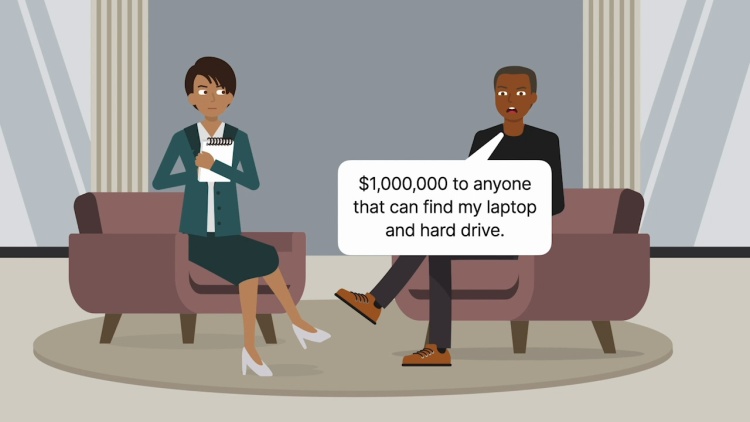Augstein v. Leslie
United States District Court for the Southern District of New York
2012 WL 4928914 (2012)
- Written by Abby Roughton, JD
Facts
Ryan Leslie (defendant) was a musician whose laptop computer, external hard drive, and other personal property were stolen while he was on tour in Germany. The items contained valuable intellectual property including an unreleased album. Leslie announced in a YouTube video that he would give $20,000 to anyone who returned the items. Leslie later posted another YouTube video increasing the amount of the award to $1 million. A printed message at the end of that video stated, “In the interest of retrieving the invaluable intellectual property contained on his laptop & hard drive, Mr. Leslie has increased the reward offer . . . .” The increase was covered by news organizations, announced on Leslie’s Facebook and Twitter accounts, and discussed by Leslie in a television interview. Armin Augstein (plaintiff) gave Leslie’s laptop and hard drive to the police in Germany and tried to collect the reward from Leslie. However, Leslie refused to pay the reward money to Augstein, claiming that the intellectual property was no longer present on the hard drive when Augstein returned it. Leslie asserted that he and his staff had unsuccessfully tried to access the material on the hard drive. Leslie had then sent the hard drive to the manufacturer, which deleted all the information from the hard drive and sent Leslie a replacement. Augstein sued Leslie in the United States District Court for the Southern District of New York. Augstein asserted that Leslie made an offer of the reward for the return of the laptop and other property, and that Augstein accepted the offer and fully performed by giving the laptop to the German police. Augstein also alleged that after he asked Leslie for the reward money, Leslie caused the hard drive to be erased to avoid paying the reward. Leslie argued that the reward was an advertisement and not an offer. Augstein moved for summary judgment on the issue of whether the reward was a valid offer that Augstein accepted and performed by returning the laptop.
Rule of Law
Issue
Holding and Reasoning (Baer, J.)
What to do next…
Here's why 907,000 law students have relied on our case briefs:
- Written by law professors and practitioners, not other law students. 47,100 briefs, keyed to 996 casebooks. Top-notch customer support.
- The right amount of information, includes the facts, issues, rule of law, holding and reasoning, and any concurrences and dissents.
- Access in your classes, works on your mobile and tablet. Massive library of related video lessons and high quality multiple-choice questions.
- Easy to use, uniform format for every case brief. Written in plain English, not in legalese. Our briefs summarize and simplify; they don’t just repeat the court’s language.





